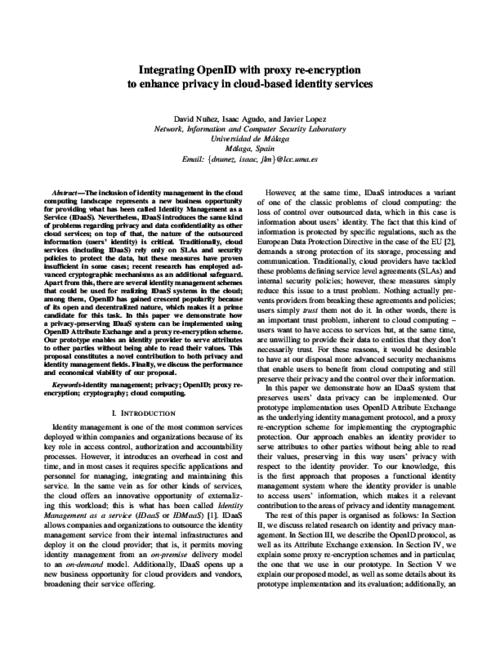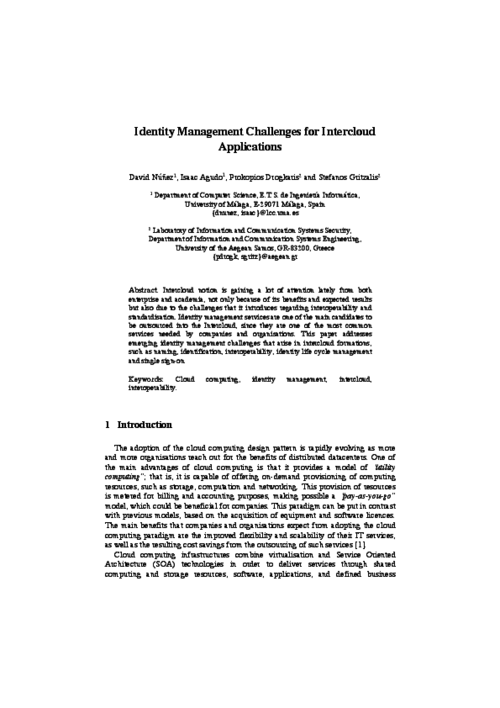IEEE CloudCom 2012, IEEE Computer Society, pp. 241 - 248, Dec 2012. DOI
Abstract
The inclusion of identity management in the cloud computing landscape represents a new business opportunity for providing what has been called Identity Management as a Service (IDaaS). Nevertheless, IDaaS introduces the same kind of problems regarding privacy and data confidentiality as other cloud services; on top of that, the nature of the outsourced information (users’ identity) is critical. Traditionally, cloud services (including IDaaS) rely only on SLAs and security policies to protect the data, but these measures have proven insufficient in some cases; recent research has employed advanced cryptographic mechanisms as an additional safeguard. Apart from this, there are several identity management schemes that could be used for realizing IDaaS systems in the cloud; among them, OpenID has gained crescent popularity because of its open and decentralized nature, which makes it a prime candidate for this task. In this paper we demonstrate how a privacy-preserving IDaaS system can be implemented using OpenID Attribute Exchange and a proxy re-encryption scheme. Our prototype enables an identity provider to serve attributes to other parties without being able to read their values. This proposal constitutes a novel contribution to both privacy and identity management fields. Finally, we discuss the performance and economical viability of our proposal.

1st International Workshop on Security and Trust for Applications in Virtualised Environments (STAVE 2011), vol. 187, pp. 198-204, June, 2011. DOI
Abstract
Intercloud notion is gaining a lot of attention lately from both enterprise and academia, not only because of its benefits and expected results but also due to the challenges that it introduces regarding interoperability and standardisation. Identity management services are one of the main candidates to be outsourced into the Intercloud, since they are one of the most common services needed by companies and organisations. This paper addresses emerging identity management challenges that arise in intercloud formations, such as naming, identification, interoperability, identity life cycle management and single sign-on.

 ]
]